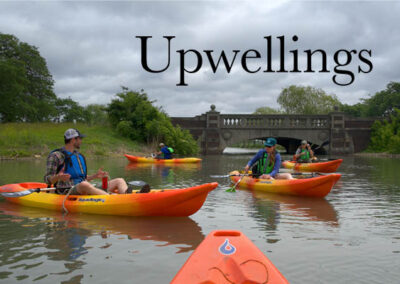
Damage to a marina in the Great Lakes from Superstorm Sandy. Photo: ODNR Office of Coastal Management
Climate change is affecting over 3,000 miles of shoreline in Michigan by causing increased variability and extremes in Great Lakes water levels and weather patterns. For example, in 2019 and 2020, Great Lakes levels were at or near historic highs; in 2013, however, lake levels were at or near historic lows. Climate change has also increased total precipitation by approximately 14% as well as the frequency of precipitation events by approximately 35% in Michigan.
Unfortunately, while the complexity of coastal dynamics has increased, the ability of local resource managers to respond to these changes has not kept pace.
“Local officials often do not have the time or training required to properly manage coastal resources and projects,” said co-principal investigator Mike Shriberg, Professor of Practice and Engagement at the University of Michigan School for Environment and Sustainability, and Director of Engagement for the Cooperative Institute for Great Lakes Research (CIGLR) and Michigan Sea Grant (MISG). “And they often don’t know what resources to use or who to contact for assistance – there’s a lot of information out there and it’s hard to know how to use it effectively.”
Through a new $150,000 project, MISG hopes to help alleviate this information overload and provide access to services and resources that coastal managers need. In the first year of this multi-year project, MISG has already convened a workshop and is preparing to provide usable data and resources to Michigan’s coastal resiliency managers. Long-term, this effort will continue to link institutions and agencies working on coastal resiliency throughout the state.
Along with co-PI Silvia Elena Newell, Director of MISG and Professor at the U-M School for Environment and Sustainability, Shriberg said the project will help provide the information managers need for long-term solutions that consider resiliency and sustainability.

A flooded neighborhood in metropolitan Detroit. Photo: Michigan Sea Grant
The team is building an online resource hub for coastal resilience, which will include Michigan-specific best available information and tools on flooding and vulnerability, availability of funding and other resources to address resiliency threats, and models and resources for policy approaches. Over time, the information hub will expand to include decision support tools that use climate information and are geared to practitioners and decision makers; how-to videos and guidance documents to increase the usability of existing tools; and a primer for coastal resilience managers in Michigan on what future climate information is publicly available and appropriate to use in coastal decision contexts.

Low water levels in the West Arm of Grand Traverse Bay. Photo: Michigan Sea Grant
MISG is building on expertise in coastal resiliency, relationships with local decision makers via Michigan State University (MSU) Extension and beyond. In addition, MISG is working with the NOAA-funded Great Lakes Climate Adaptation Partnership (CAP, formerly known as RISA) team and CIGLR to implement this project, building on the strengths of other organizations and networks. As a result, this effort also will connect local officials with experts and researchers at institutions and agencies working on coastal resiliency in Michigan. These groups include state agency regulators and funders, MISG Extension staff, key consulting firms, the Michigan Association of Planners, various Councils of Governments, regional planning personnel, and nonprofit supporters such as the Great Lakes & St. Lawrence Cities Initiative.
Sea Grant programs across the United States are expanding capacity for collaborative engagement to advance the sustainability of coastal and Great Lakes communities. National Sea Grant awarded $4 million – $125,000 per program – in fiscal year 2023 funds to continue or expand ongoing work or address new opportunities for coastal climate adaptation and resilience for the communities that Sea Grant serves. Programs typically leverage these grants with additional program funds and at least 50% matched partner contributions.


